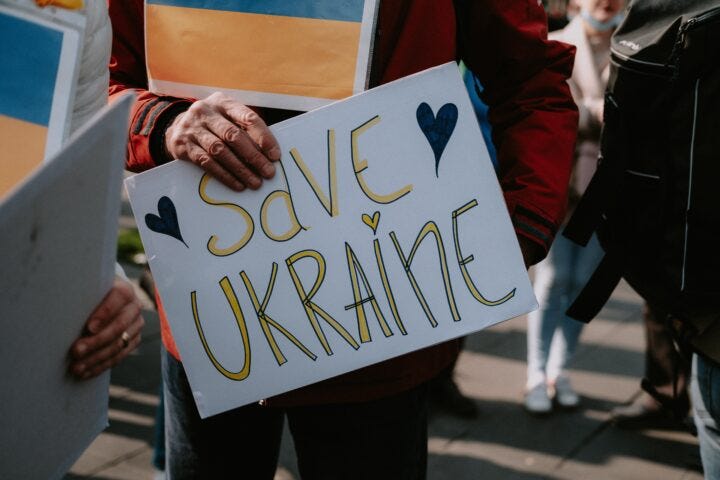Through the eyes of a native Ukrainian woman: The 2022 Ukraine War
Catherine Orellana and Breana Owens wrote this article for Cal State San Bernardino’s Coyote Chronicle. It is available for republication or reference. If you think their work is important, you can support it here.
“Sometimes I just want to check out, but I do not have that luxury,” Kristina Korbs said as she endures the hardships of war in Ukraine. The young woman was featured on CNN as she expressed the turmoil her country has faced due to the uncertainty of its future.
Kristina Korbs is a native Ukrainian woman who documents her day-to-day life on social media such as TikTok as she gives her international viewers a look inside life living through a war. Korbs explains and updates viewers on the challenges she and her loved ones face daily, as well as the hurt her people face every day as constant attacks and battles continue in Ukraine. Korbs documents her life to give her followers a realistic and factual view of what is happening every day in Ukraine as social media and the news have bombarded the public with so much news that many now don’t know what to believe. This woman as well utilizes this social media platform to spread awareness and try to do her part to aid the people of Ukraine.
Everyday necessities such as food and gas are not easily accessible to those living within the borders of Ukraine. Kprbs illustrates through her videos a firsthand experience of long lines that show desperation and scarcity of food. She shows how people line up blocks away from the grocery store and wait long hours just to see if they can get their hands on limited essential supplies. Grains and sugar are limited down to five kilos per customer despite the need and demand being much higher. Grocery store shelves are shown to be baron and clear of many foods like bread, however, there is an abundance of eggs and chicken. The rations do not stop at the grocery store alone. Ukrainian citizens are confined to only 20 liters or five gallons of gas per car. Weekly inventory is taken in her home to see how many available resources are feasible for the family to use. Seeing as multiple people are living in her household, controlled distribution is vital to survival. Power outages are not an uncommon occurrence that Kristina bears witness to. On one occasion when the power was down for a couple of hours, all of their frozen food was defrosted such as multiple bags of potato dumplings. Due to the situation, they were forced to cook meals that were intended for an emergency. This is something that is not unique to the Korbs family, but to many households in Ukraine.
Leaving the country is basically impossible for most citizens. It is much easier for many to wait in long lines for small portions of food at the grocery store than to exit the country. The roads are blocked, and the dense traffic keeps the road packed for miles. In this instance, the risk is not worth the reward. Kristina believes that staying put is the best option for her and her family because of the many obstacles they would have to face in attempting to flee. Her household consists of children, senior citizens, and animals; 17 people in total. Packing up for days to make a trip to the border would require food that they don’t have, and more gas than they are allowed. There is also the issue of safety with road blockades everywhere, and checkpoints. Should Korbs and her family make it out, they would face the ongoing threat of bombings. This is why the best course of action is to stay where they are and work with what they have.




